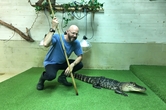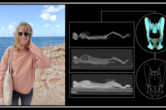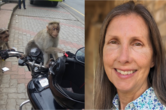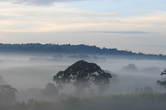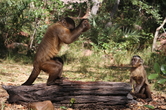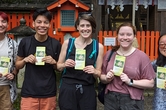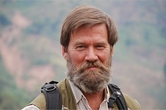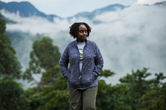The PrimateCast #32:Conservation Voices - Our Coverage of the Student Conference on Conservation Science in Brisbane, Australia
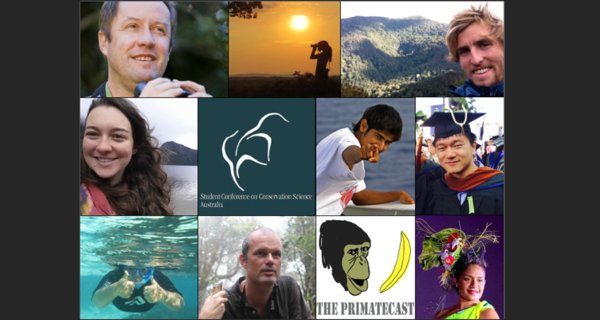
In the cold Winter, The PrimateCast journeyed to warm up in Australia and to cover the second Student Conference on Conservation Science (SCCS) Australia. SCCS Australia was hosted by the University of Queensland in Brisbane between January 19 and 29, 2015. If you've ever wondered what Conservation Science looks like in Papua New Guinea, Australia, China, or Columbia, read on.
The PrimateCast was at SCCS Australia 2015
Last September, we were in India to cover SCCS Bangalore. These student conferences on conservation science are held worldwide at 6 different locations (Cambridge, Bangalore, Australia, New-York, Beijing and Hungary). These conferences are designed for young conservation scientists to help them gain experience, learn new ideas and make contacts that will be valuable for their future careers.
In this series of interviews, you will hear from conservationists and students who presented at SCCS Australia 2015 and who are mainly working between the Himalayas and Fiji, where about 30% of all marine and terrestrial species on the planet occur! In the first interview, Professor Hugh Possingham, gives us insight into how and why SCCS Australia began. Then, Pr. Possingham returns to his own focus on optimal monitoring for nature conservation, and ends with an introduction to Decision Point, a good example of how conservation research can be translated into effective decision-making among policy makers. In the following interviews, Grace Nugi talks about her research on the customary use of vulturine parrots in the highlands of Papua New Guinea, Dr. Erik Meijaard shares his conservation experience in the Asia-Pacific, Angela Recalde-Salas explains how her research on baleen whale acoustics may contribute to optimal monitoring and management, Kay Critchell triggers our environmental awareness with her project on microplastic and its impact on our oceans, Trishant Simlai speaks about protected area planning in India, Yufang Gao shares his findings regarding the Chinese ivory trade, Sean Maxwell presents his research about the impact of extreme weather events on different animal species, and Natasha Peters talks about the cause of declines for the Egyptian vulture between Bulgaria and Greece.
List of Interviews
Click one of the researcher names below to skip directly to that segment of the podcast (Coming Soon)
*Please allow time for the audio to buffer if you have a slower internet connection
- Dr. Hugh Possingham [Professor of Mathematics and Ecology]
- Ms. Grace Nugi [Research Intern with the Wildlife Conservation Society Papua New Guinea, Miss Papua New Guinea]
- Dr. Erik Meijaard [Conservation Scientist and Consultant]
- Ms. Angela Recalde-Salas [PhD Student]
- Mr. Trishant Simlai [Technical project consultant]
- Mr. Sean Maxwell [PhD student]
- Ms. Natasha Peters [Research Intern]
Join us on The PrimateCast, and feel free to visit us at Facebook and Twitter and leave comments and feedback on this or any other podcast in the series. You can also subscribe to the podcast on iTunes.
This podcast series was brought to you by CICASP, and was produced by Cecile Sarabian and Andrew MacIntosh.
